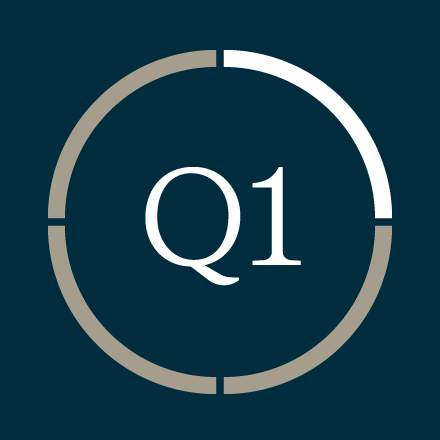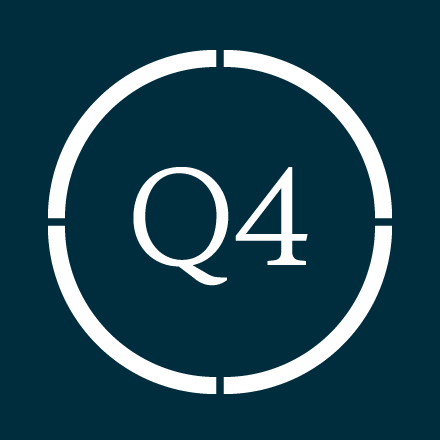It includes funding for a national childcare program, housing, transit, green technology and extension of COVID-19 wage and rent subsidies. The budget also contains new tax measures, with the deficit expected to reach $154.7 billion this year on top of nearly $354 billion in 2020.
To help you understand how the 2021/22 budget affects individuals financially, our Tax and Estate Planning Team has provided this analysis. Here are the highlights.
I. Measures concerning individuals
Establishing a Canada-Wide Early Learning and Child Care System
The federal government will work with provincial, territorial, and Indigenous partners, over the next five years, to build a Canada-wide, community-based system of quality child care.
The federal funding would allow for:
- A 50% reduction in average fees for regulated early learning and child care in all provinces outside of Quebec, to be delivered before or by the end of 2022.
- An average of $10 a day by 2025-26 for all regulated child care spaces in Canada, outside of Quebec.
Helping Seniors
The government will increase the Old Age Security (OAS) for seniors 75 and over in two steps:
- Provide a one-time payment of $500 in August 2021 to OAS pensioners who will be 75 or over as of June 2022.
- Increase regular OAS payments for pensioners 75 and over by 10 % on an ongoing basis as of July 2022; thereby providing additional benefits of $766 to full pensioners in the first year and indexed to inflation thereafter.
Improving Access to the Disability Tax Credit (DTC)
- Update the list of mental functions of everyday life that is used for assessment for the DTC, using terms that are more clinically relevant, thereby making it easier to assess, reduce delays, and improve access to benefits.
- Recognize more activities in determining time spent on life-sustaining therapy and to reduce the minimum required frequency of therapy to qualify for the DTC.
The government will undertake a review of these changes in 2023.
Increase in the Federal Minimum Wage to $15
The Government proposes to establish a $15 Federal Minimum Wage, rising with inflation, with provisions to ensure that where provincial or territorial minimum wages are higher, that wage will prevail.
Enhancing the Canada Workers Benefit
The government would raise the income level at which the Canada Workers Benefit (CWB) starts being reduced to $22,944 for single individuals without children and to $26,177 for families. The CWB provides low-income workers with a tax refund—up to almost $1,400 for single individuals without children and $2,400 for families.
- As well, the Budget 2021 proposes to allow secondary earners to exclude up to $14,000 of their working income when income-testing the CWB.
Providing Additional Weeks of Recovery Benefits
To provide up to 12 additional weeks of Canada Recovery Benefit to a maximum of 50 weeks. The first four of these additional 12 weeks will be paid at $500 per week. As the economy reopens over the coming months, the government intends that the remaining 8 weeks of this extension will be paid at a lower amount of $300 per week claimed.
To extend the Canada Recovery Caregiving Benefit an additional 4 weeks, to a maximum of 42 weeks, at $500 per week, in the event that caregiving options, particularly for those supporting children, are not sufficiently available in the interim as the economy begins to safely reopen.
Helping Youth and Students Build Job Skills and Connect with Employers
The government proposes to invest in the Student Work Placement Program in 2021-22 to support work-integrated learning opportunities for post-secondary students. This funding would increase the wage subsidy available for employers to 75 %, up to $7,500 per student, while also increasing employers’ ability to access the program.
Providing Relief from Student Debt
To provide even further support to students and recent graduates, and reform the Canada Student Loans Program. The new Canada Student Financial Assistance Program proposes to:
- Extend the waiver of interest accrual on Canada Student Loans and Canada Apprentice Loans until March 31, 2023.
- Increase the threshold for repayment assistance to $40,000 from $25,000 for borrowers living alone, so that nobody earning $40,000 per year or less will need to make any payments on their student loans.
- Double the Canada Student Grants for two additional years until the end of July 2023.
- Extend disability supports to recipients whose disabilities are persistent or prolonged, but not necessarily permanent, giving those individuals access to up to $22,000 in grants, in-study supports specialized repayment assistance on their loans.
Extending Federal Supports for Adults Who Return to School Full-Time
- To extend the $1,600 adult learner top-up to the full-time Canada Student Grant for an additional two school years—until July 2023.
Interest-free Loans for Retrofits
Help homeowners complete deep home retrofits through interest-free loans worth up to $40,000 from the Canada Mortgage and Housing Corporation. Loans would be available to homeowners and landlords who undertake retrofits identified through an authorized EnerGuide energy assessment.
Rural and Northern Communities
Extend the Northern Residents Deduction, starting with the 2021 taxation year, to include Northerners without employer-provided travel benefits, thereby allowing them to claim up to $1,200 in eligible travel expenses.
Luxury Tax
Effective January 1, 2022, a tax will be introduced on the sale, for personal use, of luxury cars and personal aircraft with a retail sale price over $100,000, and boats, for personal use, over $250,000. The tax would be calculated at the lesser of 20% of the value above the threshold ($100,000 for cars and personal aircraft, $250,000 for boats) or 10% of the full value of the luxury car, boat, or personal aircraft.
The tax would generally apply at the final point of purchase of new luxury vehicles, aircrafts and boats in Canada. In the case of imports, application would generally be either at the time of importation (in cases where there will not be a further sale of the goods in Canada) or at the time of the final point of purchase in Canada following importation.
Upon purchase or lease, the seller or lessor would be responsible for remitting the full amount of the federal tax owing, regardless of whether the good was purchased outright, financed, or leased over a period of time.
Exports will not be subject to the tax, in line with their treatment under other taxation regimes.
The GST/HST would apply to the final sale price, inclusive of the proposed tax.
Tax on Unproductive Use of Canadian Housing by Foreign Non-resident Owners
Effective January 1, 2022, implement a national, annual 1% tax on the value of non-resident, non-Canadian owned residential real estate that is considered vacant or underused. The tax will require all owners, other than Canadian citizens or permanent residents of Canada, to file a declaration as to the current use of the property, with significant penalties for failure to file.
II. Measures Concerning Businesses
Supporting Business Investments in New Technologies
This measure will allow:
- Temporary immediate expensing of up to $1.5 million per taxation year of eligible investments by Canadian-controlled private corporations (CCPC) made on or after Budget Day and before 2024 in respect of certain property acquired.
- Immediate expensing would be available for "eligible property" acquired by a CCPC on or after Budget Day and that becomes available for use before January 1, 2024. The immediate expensing would only be available for the year in which the property becomes available for use.
- The $1.5 million limit would be shared among associated members of a group of CCPCs. The limit would be prorated for taxation years that are shorter than 365 days. The half-year rule would be suspended for property for which this measure is used. For those CCPCs with less than $1.5 million of eligible capital costs, no carry-forward of excess capacity would be allowed.
- CCPCs with capital costs of eligible property in a taxation year that exceed $1.5 million would be allowed to decide to which capital cost allowance (CCA) class the immediate expensing would be attributed and any excess capital cost would be subject to the normal CCA rules.
- Eligible property under this new measure would be capital property that is subject to the CCA rules, other than property included in CCA classes 1 to 6, 14.1, 17, 47, 49 and 51, which are generally long lived assets.
Rate Reduction for Zero-Emission Technology Manufacturers
Temporary reduction in corporate income tax rates for qualifying zero-emission technology manufacturers. Specifically, taxpayers would be able to apply reduced tax rates on eligible zero-emission technology manufacturing and processing income of:
- 7.5%, where that income would otherwise be taxed at the 15% general corporate tax rate; and
- 4.5%, where that income would otherwise be taxed at the 9% small business tax rate.
For taxpayers with income subject to both the general and the small business corporate tax rates, taxpayers would be able to choose to have their eligible income taxed at either the reduced rate of 4.5% for small businesses or the general reduced rate of 7.5% . The amount of income taxed at the 4.5% rate plus the amount of income taxed at the small business rate of 9% would not be allowed to exceed the $500,000 business limit.
The reduced tax rates would apply to taxation years that begin after 2021. The reduced rates would be gradually phased out starting in taxation years that begin in 2029 and fully phased out for taxation years that begin after 2031 (as shown in Table 8).
Table 8 - Schedule of Reduced Tax Rates
| Taxation years that begin in: | 2022 to 2028 | 2029 | 2030 | 2031 | 2032 or later |
|---|---|---|---|---|---|
| Reduced Tax Rate on Income Eligible for the Small Business Deduction | 4.5% | 5.625% | 6.75% | 7.875% | 9% |
| Reduced Tax Rate on Other Eligible Income | 7.5% | 9.375% | 11.25% | 13.125% | 15% |
Source : A recovery plan for jobs, growth and resilience, Budget 2021, Annex 6, Tax Measures: Supplementary Information, p.620
Given the targeted application, temporary nature, and gradual phase-out of the proposed measure, no changes to the dividend tax credit (DTC) rates or the allocation of corporate income for the purpose of dividend distributions are proposed. That is, income subject to the general reduced rate would continue to give rise to eligible dividends and the enhanced dividend tax credit, while income subject to the reduced rate for small businesses would continue to give rise to non-eligible dividends and the ordinary DTC.
Digital Services Tax
Implement a Digital Services Tax at a rate of 3% on revenue from digital services that rely on data and content contributions from Canadian users. The tax would apply to large businesses with gross revenue of 750 million euros or more. It would apply as of January 1, 2022, until an acceptable multilateral approach comes into effect.
Limitation on Excessive Interest Deductions
Canada has been an active participant in the Base Erosion and Profit Shifting (BEPS) Project—an initiative of the G20 and the Organisation for Economic Co-operation and Development. The BEPS Project is primarily devoted to tackling the problem of certain corporations and wealthy individuals inappropriately shifting profits offshore and using other international tax avoidance schemes.
Budget 2021 proposes to amend the Income Tax Act to eliminate the tax benefits of hybrid mismatch arrangements. These proposals would be implemented in stages starting July 1, 2022.
Extending Canada’s Emergency response to the COVID-19 pandemic
Numerous measures will be extended to September 25, 2021, while proposing a gradual decrease in the subsidy rate, beginning July 4, 2021, to ensure an orderly phase-out of the program as vaccinations are completed and the economy reopens, including:
- the wage subsidy
- the rent subsidy and Lockdown Support
In addition, any publicly listed corporation receiving the wage subsidy and found to be paying its top executives more in 2021 than in 2019 will need to repay the equivalent in wage subsidy amounts received for any qualifying period starting after June 5, 2021 and until the end of the wage subsidy program.
III. Other measures
Taxation of Tobacco
Increase the tobacco excise duty by $4 per carton of 200 cigarettes, along with corresponding increases to the excise duty rates for other tobacco products. This measure would take effect the day after Budget Day.
Taxation of Vaping Products
Introduce a new taxation framework for the imposition of excise duties on vaping products in 2022.
For more information
To find out more about the 2021-2022 Federal Budget, visit the Government of Canada website.
Important Information
This article is published by SLGI Asset Management Inc. and contains information in summary form. This article is provided for information purposes only and is not intended to provide specific individual financial, investment, tax or legal advice. Views expressed regarding a particular company, security, industry or market sector should not be considered an indication of trading intent of any mutual funds managed by SLGI Asset Management Inc. These views are not to be considered as investment advice nor should they be considered a recommendation to buy or sell. Information contained in this article has been compiled from sources believed to be reliable, but no representation or warranty, express or implied, is made with respect to its timeliness or accuracy.
Please speak with your professional advisors, such as your advisor or tax specialist, and refer to the Budget as published by the Government of Canada for details before acting on any of the information.
Sun Life Global Investments is a trade name of SLGI Asset Management Inc., Sun Life Assurance Company of Canada and Sun Life Financial Trust Inc.
SLGI Asset Management Inc. is the investment manager of the Sun Life Mutual Funds, Sun Life Granite Managed Solutions and Sun Life Private Investment Pools.
© SLGI Asset Management Inc. and its licensors, 2021. SLGI Asset Management Inc. is a member of the Sun Life group of companies. All rights reserved.



